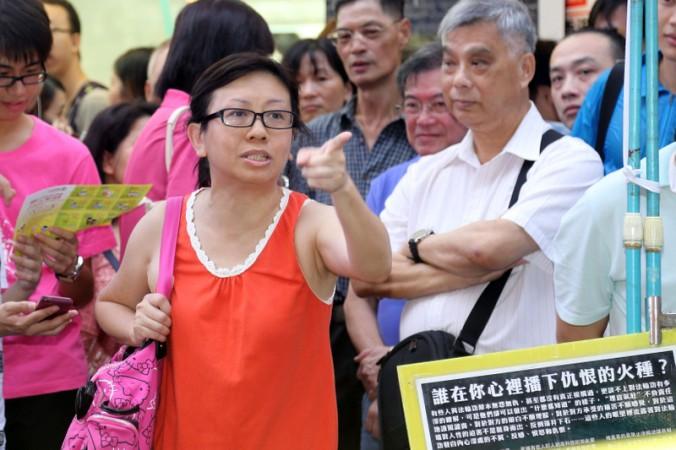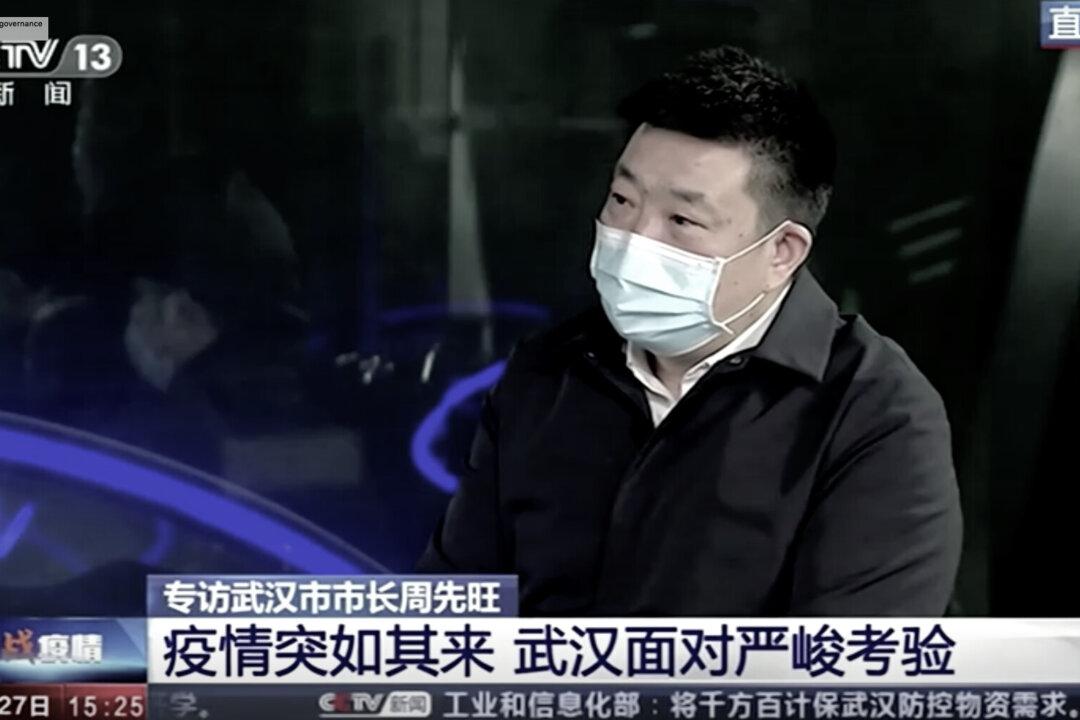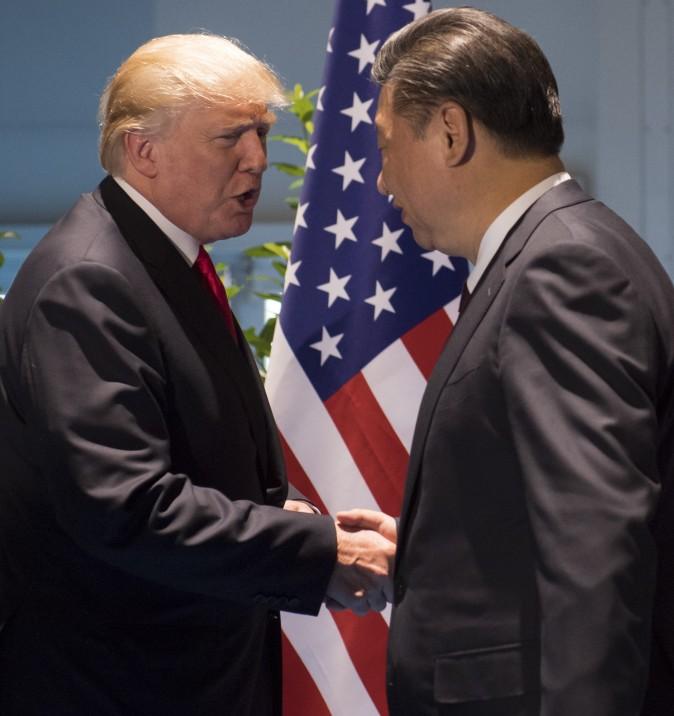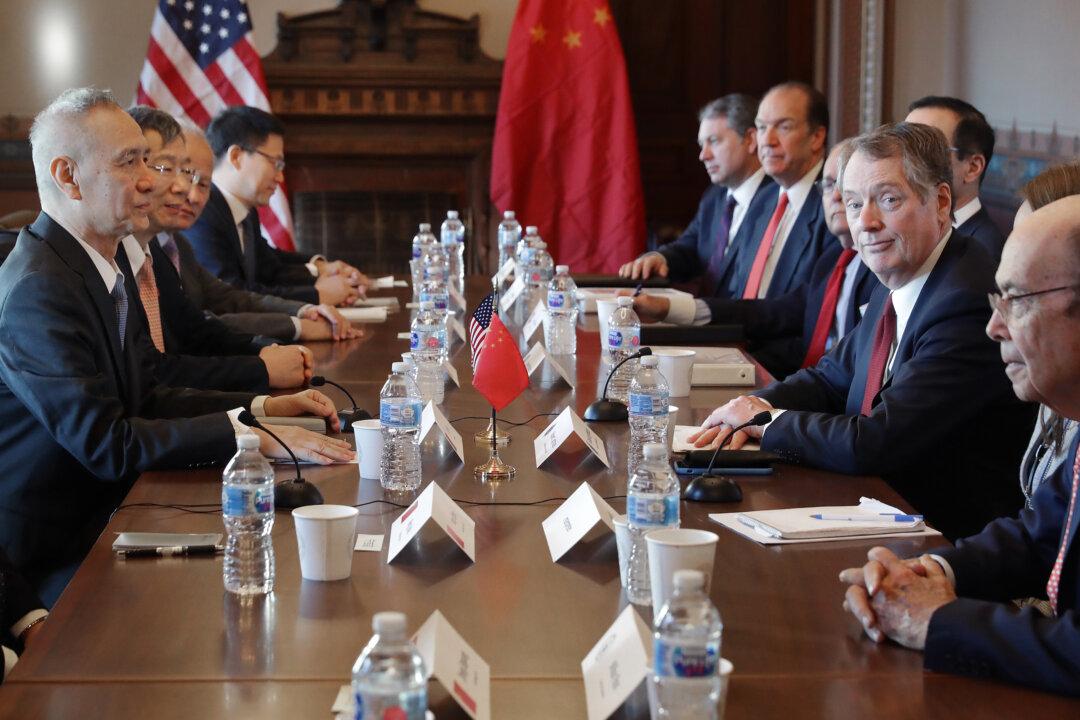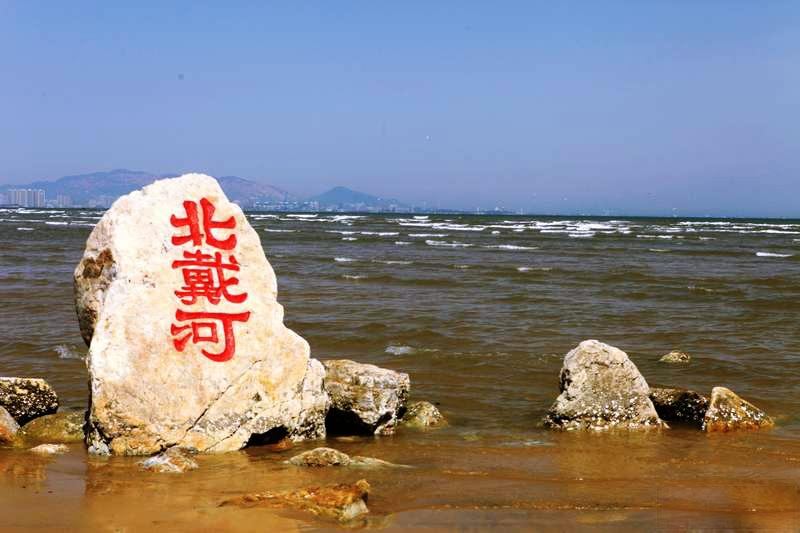Since the Lam Wai-sze affair broke, people in Hong Kong have begun asking whether chief executive Leung Chun-ying has lost his mind.
All of Hong Kong knows the story. On July 14 on Sai Yeung Choi Street in the Mong Kok district the primary school teacher Lam used an off color word when upbraiding the Hong Kong police for not protecting the freedom of speech of Falun Gong practitioners.
Edited videos published by media outlets friendly to the Chinese Communist Party (CCP) focused on her profanity; subsequent videos showed her entire speech. It seems Lam was destined to have her 15 minutes of fame. In any case, Leung Chun-yin could have stayed above the fray.
Instead, he ordered his Education Bureau to investigate Lam and, probably due to the resulting pressure, Lam’s school gave the award-winning teacher a verbal warning.
Leung ordered the Mong Kok police to launch a criminal investigation of this woman whose only “crime” appears to be that she used a word one hears every day on the street in Hong Kong.
At public events triads have shown up and beaten those opposing Leung, and Leung has done nothing to distance himself from them.
‘Hong Kong Municipal Committee Secretary’
Leung, a native of Hong Kong, would seem to be a typical candidate for running the city. He has a UK university education and only became a politician after a career as a successful Hong Kong merchant.
Leung differs from others who have held the chief executive post in that he has a “red” background. In March 2013, former Hong Kong underground communist party member Florence Leung Mo-han claimed, in her memoir “My Time in Hong Kong’s Underground Communist Party,” that Leung Chun-ying was an underground CCP member
She claimed that Leung Chun-ying had been the secretary-general of the Basic Law Consultative Committee of Hong Kong in 1988, a position that in China is only granted to Party members. Florence Leung says that though there is no documentary proof of his membership, Leung’s actions strongly suggest that he is a CCP agent.
In response to this claim, Leung has publicly stated that he was not a member of the CCP and had never been asked to join.
Leung Chun-ying’s denial can’t be taken at face value, however. On Aug. 26, 2009, Hong Kong Liberal Party founder Allen Lee Peng-fei pointed out in the Hong Kong Economic Journal that underground agents have the right to deny their membership in the Party.
Others who have claimed Leung was an underground CCP member include former Tiananmen student leader Wang Dan, quoting former Wen Wei Po editor-in-chief Jin Yaoru. Wen Wei Po can be presumed to know something about Party affairs—it is the semi-official mouthpiece of the Chinese regime in Hong Kong.
On March 28, 2012, after his electoral victory, the CCP mouthpiece People’s Daily in a small news item used the term “comrade”—a word Party members only use for other Party members—to address Leung and called him by the title of “Administration Officer,” before he officially took the position of chief executive.
After this article was noticed, People’s Daily removed “comrade” and corrected his title. After Leung’s election as Hong Kong chief executive, Chinese netizens taunted him with the title “Hong Kong municipal committee secretary.”
Threats to Hong Kong
Demands for Leung to step down from office have been prevalent since his July 1, 2012, inauguration and increased after he was reported to have violated building codes in the remodeling of his home.
On New Year’s Day in 2013, 130 thousand people, as estimated by members of the Human Rights Front, attended a parade demanding Leung’s resignation. On July 1, 430 thousand people, despite being drenched by a typhoon, took part in a march insisting he step down.
Leung’s tenure is simply the latest form in which the CCP has threatened Hong Kong. During the Cultural Revolution, Red Guards tried several times to cross into Hong Kong, and Hong Kong leftists incited rebellions inside Hong Kong on behalf of the CCP. Only when Premier Zhou Enlai gave the order that the Party fully intends the long-term utilization of Hong Kong did the leftist threat to Hong Kong stop.
Nowadays, the situation in Hong Kong is more dangerous than during the Cultural Revolution. Since the transfer of sovereignty from the United Kingdom to the CCP in 1997, freedom of speech, press, and religion have been greatly diminished, but never so much as in the past year.
The leading edge of the campaign to take liberty away from the people of Hong Kong has been Leung’s aggressive campaign against Falun Gong.
At tourist spots throughout Hong Kong, Falun Gong practitioners maintain information sites—usually a small table and a display of banners and placards—where they tell people about the forced organ harvesting taking place in China and ask them to withdraw from the CCP.
Since June 2012 the CCP-backed Hong Kong Youth Care Association has obstructed and tampered with these sites, harassing the practitioners who staff them. The Hong Kong police has done almost nothing to stop these latter-day brown shirts.
According to sources in the Party, the activities of the Youth Care Association were planned by former Politburo Standing Committee member Zeng Qinghong and executed by Leung Chun-ying, whom Zeng has sponsored throughout his Party career. Zeng Qinghong is a longtime Party powerbroker and top member of the Jiang Zemin faction.
Jiang’s faction started the campaign against Falun Gong 14 years ago, and it is responsible for terrible crimes. The faction members now seek a way, no matter how desperate, to avoid being held accountable for what they have done.
But their faction has seen the levers of power slip further and further from their grasp. They had pinned their hopes on former Politburo member Bo Xilai, who is now headed to prison. Faction stalwart Zhou Yongkang, the former domestic security czar, is rumored to be under Party control and to be the next to stand trial. Lower-level cadres allied with Jiang have been investigated. Some died during interrogation, some are now jailed, others have lost their former positions.
But the Jiang faction still controls Hong Kong, through Leung Chun-ying.
Desperate Gamble
With the arrest of Bo Xilai in March 2012, the Jiang faction recognized its best hope of keeping real power in the CCP was gone. According to sources in the Party, they quickly improvised a new strategy.
In April 2012 the faction decided to create the Hong Kong Youth Care Association. The suppression of Falun Gong in mainland China had been done in secret. The actions of the Youth Care Association in Hong Kong would be done in broad daylight.
The Jiang faction wanted to force the hand of the top leadership. If Party head Hu Jintao, and then his successor Xi Jinping, tried to stop the Youth Care Association, then they risked an open struggle in the Party.
If Hu Jintao and Xi Jinping allowed the suppression of Falun Gong to continue in Hong Kong, then they, too, would be implicated in the persecution. And if they bore responsibility for suppressing Falun Gong, they could not then call others to account.
Early on the morning of June 10, 2012 at Hung Hom train station, the Hong Kong Youth Care Association made its debut, showing up with bull horns and giant banners it used to cover up an information site there.
When Lam Wai-sze was captured on video condemning organ harvesting, the persecution of Falun Gong, and the CCP, she threw a monkey wrench into this improbable plan.
The Jiang faction feared that more people in Hong Kong would follow in Lam’s footsteps and condemn the persecution of Falun Gong. If that happened, the opposition in Hong Kong might be imitated by people in the mainland. They needed to make an example of her.
And so, Lam was slandered in the Hong Kong media. Overseas Chinese-language media where Jiang’s faction has influence piled on. The fifty-cent army—those the CCP pays to post messages online advancing propaganda memes—attacked her. And Leung ordered his investigations and brought out his triads.
Leung Chun-ying’s actions strongly resemble those of an addicted gambler, who after each loss makes a still more desperate bet. He has devoted his life to serving the deteriorating Jiang faction and now he has thrown away his reputation. Leung fears Lam Wai-sze because this primary school teacher, by speaking the truth on a street in Mong Kok, exposed the fraud he has banked his life on.
Translated by Virginia Wu. Written in English by Stephen Gregory.
Read the original Chinese article.
